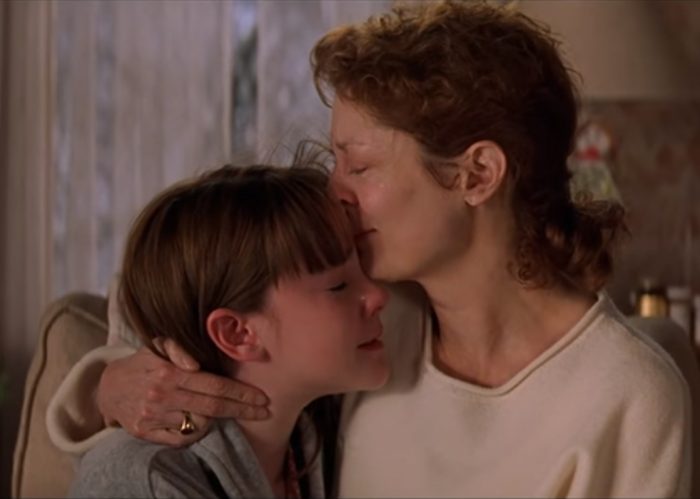None of us is immune to heartbreak.
Broken friendships, boy or girlfriend breakups, friends and family moving away, besties breaking hearts. No matter what kind of relationship it is, if there is love, togetherness, a sense of belonging, trust, and fun, there is also loss.
If we are parents, we’ll likely suffer alongside our children as their friendships and love interests change throughout their lives.
To watch your child, no matter how old, go through loss is one of the most difficult burdens to bear as a parent. We can’t avoid it, no matter how much we—or they—have prepared. But there are ways to help our children cope with heartbreak.
Here are a few do’s and don’ts to help guide you on this tough journey:
1. Don’t: Pressure them into new relationships.
Watching your child in their own hurt is agonizing for parents, and it can be extremely difficult to allow them to feel sad without trying to offer solutions. We often can’t help but try to get them out of the feeling as quickly as possible. We may want to distract them, make plans for them, even tell them to get over it and find new friends. Who doesn’t want to see their child happier?
But, if children aren’t given the time to be sad, or they see us trying to push them into new things with new people, this can turn into what feels to our children to be a complete disregard or lack of understanding for what they feel. When they are already feeling dismissed or hurt, our added pressure runs the risk of causing our children to feel even lonelier, or as though we don’t understand.
Do: Give them time, space, and language.
When children are heartbroken, they may be so young and feel so swallowed in their heartache that there are no words to describe what they feel. They’re deeply hurting and you can see it. Offering them your idea of what it might be like to go through this experience gives them the chance to understand it for themselves while also showing empathy. Anytime there is empathy, there’s a likelier chance for connection, and in the midst of loneliness, that’s the one simple thing that we want.
It’s hard to stand by and not offer different ideas and suggestions to your son or daughter so that can feel better, but the space and time you give them won’t be forever, and waiting until they’ve been given a chance to grieve often fares much better. Time heals.
Sit down next to them. Be in the same room. Grab a book or a magazine and hang tight.
2. Don’t: Advise them away from trusting people.
There’s nothing like seeing our children hurting to make us doubt our faith in humanity. We want to protect them like no other and will often do so by trying to point out that vulnerability is risky business and maybe they shouldn’t have trusted so blindly. But could you imagine a world where we didn’t connect this way? Where everything was so superficial and shallow? What would love feel like then? Would we even feel love at all?
While it’s totally reasonable to have momentary doubts in humankind, teaching our children not to trust other people or the world has very negative consequences for us all and only increases anxiety, allowing other things to settle in place of love. Depression, isolation, and loneliness all go hand-in-hand and when you add in a fear of other people or the world you now have a dependent, depressed and very anxious child.
Do: Model healthy relationships and remind them of love and gratitude.
In a time of heartbreak, it’s easy to focus on the bad stuff, but chances are that they got into a relationship looking for love, a connection, or fun. There are bound to be people in your child’s life that show them what healthy relationships look like. Aunts, uncles, brothers, or sisters—even your relationship with your spouse or partner—is the ultimate model. The love our children see is the love they’ll try to emulate, and the feeling that there’s hope for closeness with someone will help take them out of the throes of sadness and to think more long-term.
This may be incredibly difficult to do, but talking about what it felt lke to be so loved and so connected with them will remind them that with deep love comes deep loss. The more you love someone, the deeper the loss will be if or when they are no longer present in our lives. Try to express gratitude for the relationship your son or daughter had with the person they lost so that they can see the good through the bad, and experience the power of gratitude.
3. Don’t: Be their only confidant, or focus solely on your child.
Caregiver burnout is a real thing. Anytime you’re taking care of someone or sharing space with someone who’s going through an emotionally difficult process, it can be easy to stop everything or drop anything else. Everyone has bandwidth and at some point we all get maxed out. But it’s also not good to be any one person’s only person. Doing so reinforces the idea that no one else can be trusted, and it’s also incredibly difficult to get perspective when you’re in the same dark place your son or daughter may be. Taking on his or her emotion as opposed to remaining a separate sounding board limits your ability to support your child and give them what they need during this time.
Do: Gather support for your child and yourself
Every parent, when entering parenthood, should be given an automatic “Help Me!” card to cash in at various times throughout life. As parents we need help and we need support to keep us grounded, and give us perspective and hope. Whether you have a friend, family member, or therapist, utilize them to help talk through the hard stuff and get some encouragement for yourself.
Having a sense of community keeps everyone from feeling like they’re on their own island.
It’s important for children to have trusted adults outside of their parents who can also offer unbiased, supported guidance as well. If your son or daughter is open to it, encourage and assist them in finding a therapist who specializes in their age group. Someone who works with their age will not just have insight into common emotions and problems your son or daughter could be experiencing, but they’ll also have knowledge on what the brain is doing at this time in their life—something incredibly important to know as our children are still growing and developing the decision-making skills they’ll use for the rest of their lives. This doesn’t (necessarily) mean getting them on medications to get rid of their sadness. It does mean widening their sounding board—something that can help them regain their confidence and self-esteem after such a difficult time.












Read 0 comments and reply